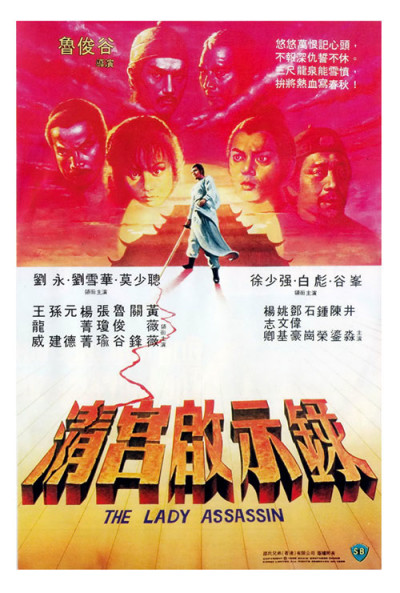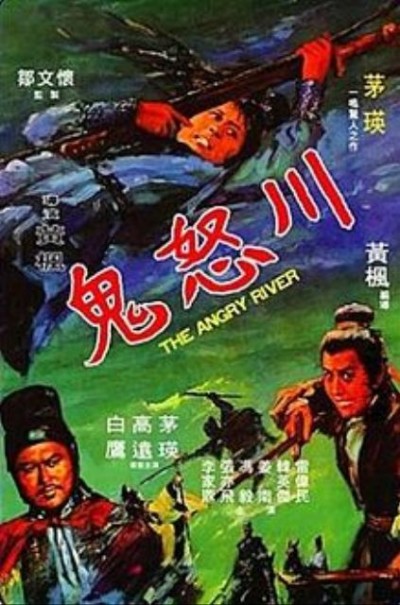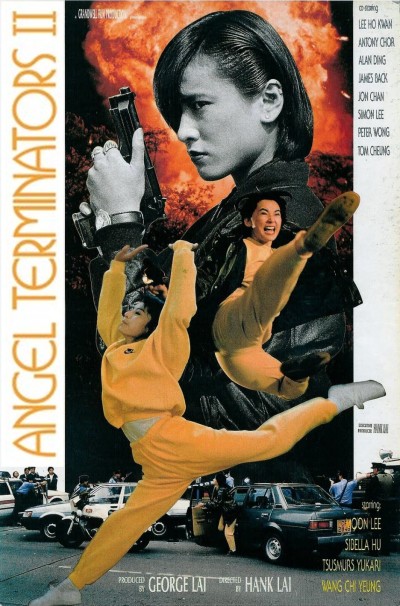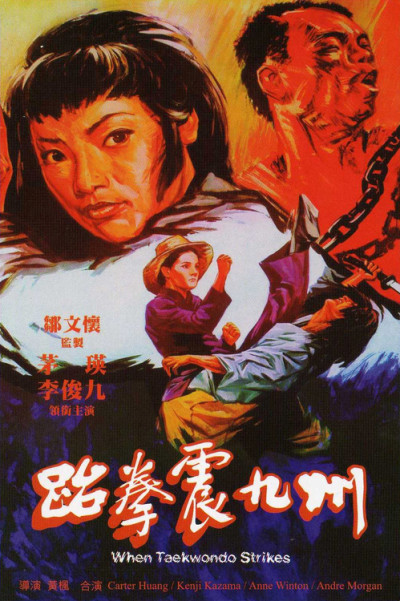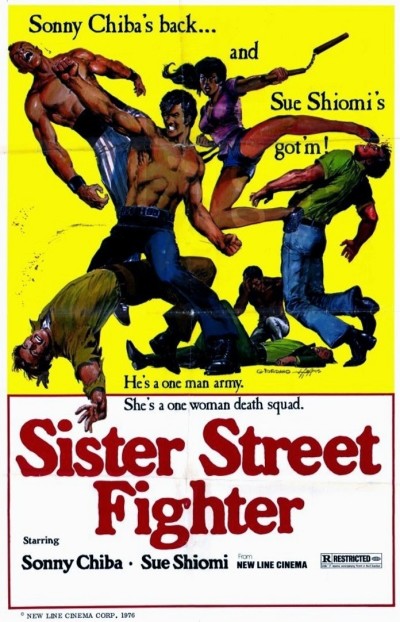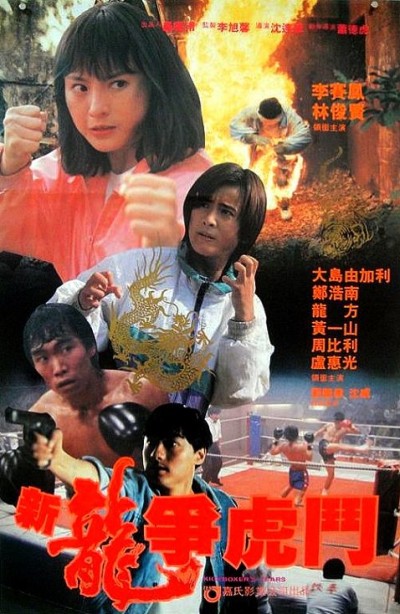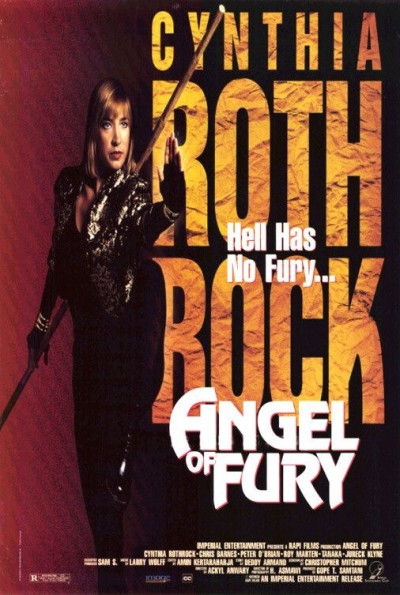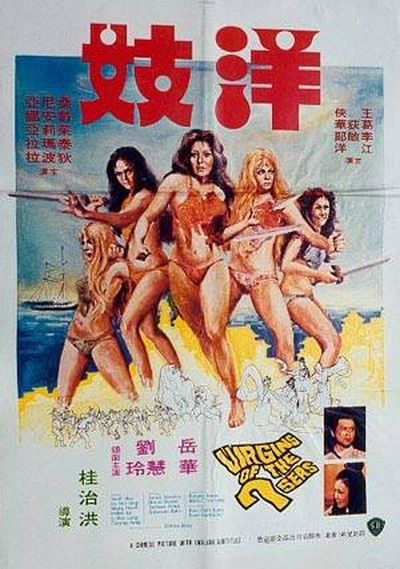★★★
“Face-off?”
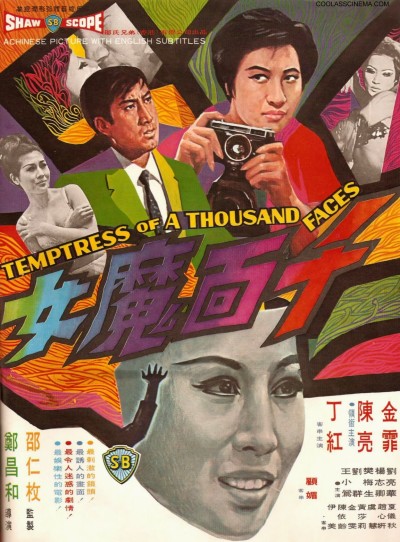 This loopy slice of sixties Shaw Brothers nonsense is best described as a bizarre combination of martial arts, 007 and Danger: Diabolik. The titular supervillainess has Hong Kong at her mercy, robbing at will due to her extraordinary disguise capabilities. The police, in particular detective Ji Ying (Chin-Fei), are aggravated, and matters are not helped by the local media sensationalizing things, realizing news about the Temptress sells a lot of newspapers. They are led by Molly (Ting Hung), who goes as far as fabricating stories entirely, which brings down on her the wrath of Ji Ying. The Temptress is similarly upset by Ji Ying’s public pronouncements condemning her as a threat to society and kidnaps the policewoman, bringing her to a secret lair purely to explain how the Temptress is doing to destroy Ji Ying’s life. This she proceeds to do, by carrying out subsequent robberies while wearing Ji Ying’s face, causing her to be arrested for those crimes. The cop escapes custody, and it seems the only way to prove her innocence is to capture the real Temptress.
This loopy slice of sixties Shaw Brothers nonsense is best described as a bizarre combination of martial arts, 007 and Danger: Diabolik. The titular supervillainess has Hong Kong at her mercy, robbing at will due to her extraordinary disguise capabilities. The police, in particular detective Ji Ying (Chin-Fei), are aggravated, and matters are not helped by the local media sensationalizing things, realizing news about the Temptress sells a lot of newspapers. They are led by Molly (Ting Hung), who goes as far as fabricating stories entirely, which brings down on her the wrath of Ji Ying. The Temptress is similarly upset by Ji Ying’s public pronouncements condemning her as a threat to society and kidnaps the policewoman, bringing her to a secret lair purely to explain how the Temptress is doing to destroy Ji Ying’s life. This she proceeds to do, by carrying out subsequent robberies while wearing Ji Ying’s face, causing her to be arrested for those crimes. The cop escapes custody, and it seems the only way to prove her innocence is to capture the real Temptress.
There are so many aspects here that are utterly ludicrous; my favourite was likely the Temptress’s lair, which is exactly what I would build, if ever I become an evil overlord. It’s all dry ice, pillars and needlessly complex torture devices, though does at least have a pool, in which the Temptress occasionally lounges, being soaped down by pastie-wearing minions. I also enjoyed the way said henchmen, on the numerous occasions when they are sent to capture Ji Ying, will inevitably first try to defeat her in hand-to-hand combat, and only after failing, then resort to pulling out their guns. To offer an honest assessment, the Temptress needs to have spent more money on her recruitment policy and rather less on the facilities. And I haven’t even got to the glorious fight between Ji Ying and “Ji Ying”, when the cop bursts in on the Temptress, wearing her face and snogging her boyfriend. Coincidentally, they’re both wearing the same outfits, and the poor man has no clue which one is the real deal, adding to the scene’s utterly surreal quality.
But, it should be stressed, these hardly detract from the entertainment value to be had here, even if many of them were apparently intended to be taken far more seriously at the time (which would be 1969) than they deserve. The heroine and villainness make for a fine pair, and given the era, it’s especially refreshing that just about all the men involved are incompetent and/or background figures. Accept that you will probably be laughing at the film as much as with it, and you’ll find an enjoyable 76 minutes of nonsense to be had here. [Tip of the hat to Dieter for pointing me in the direction of this one!]
Dir: Chang-hwa Jeong
Star: Tina Chin-Fei, Liang Chen, Pat Ting Hung





